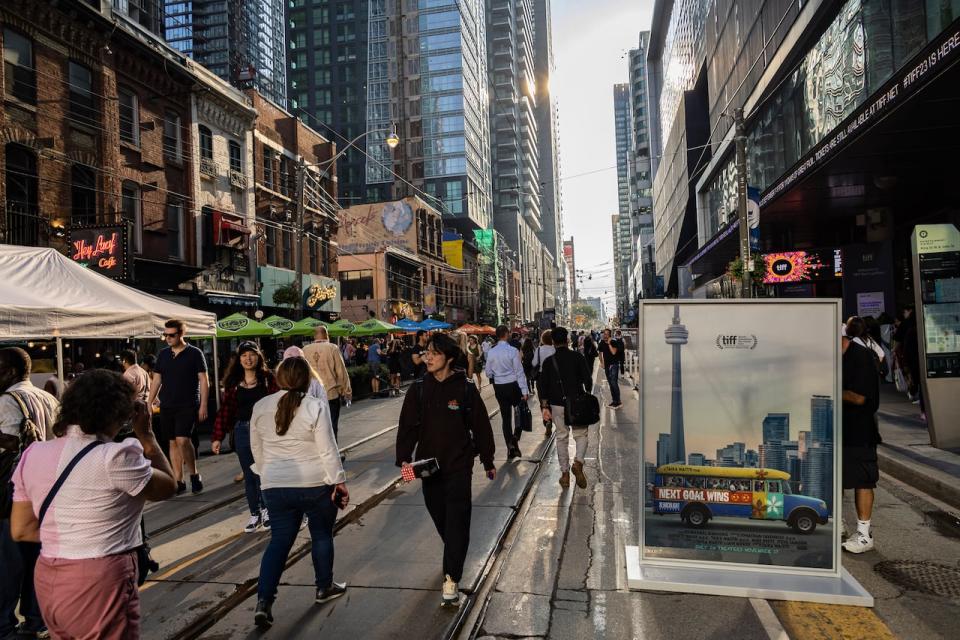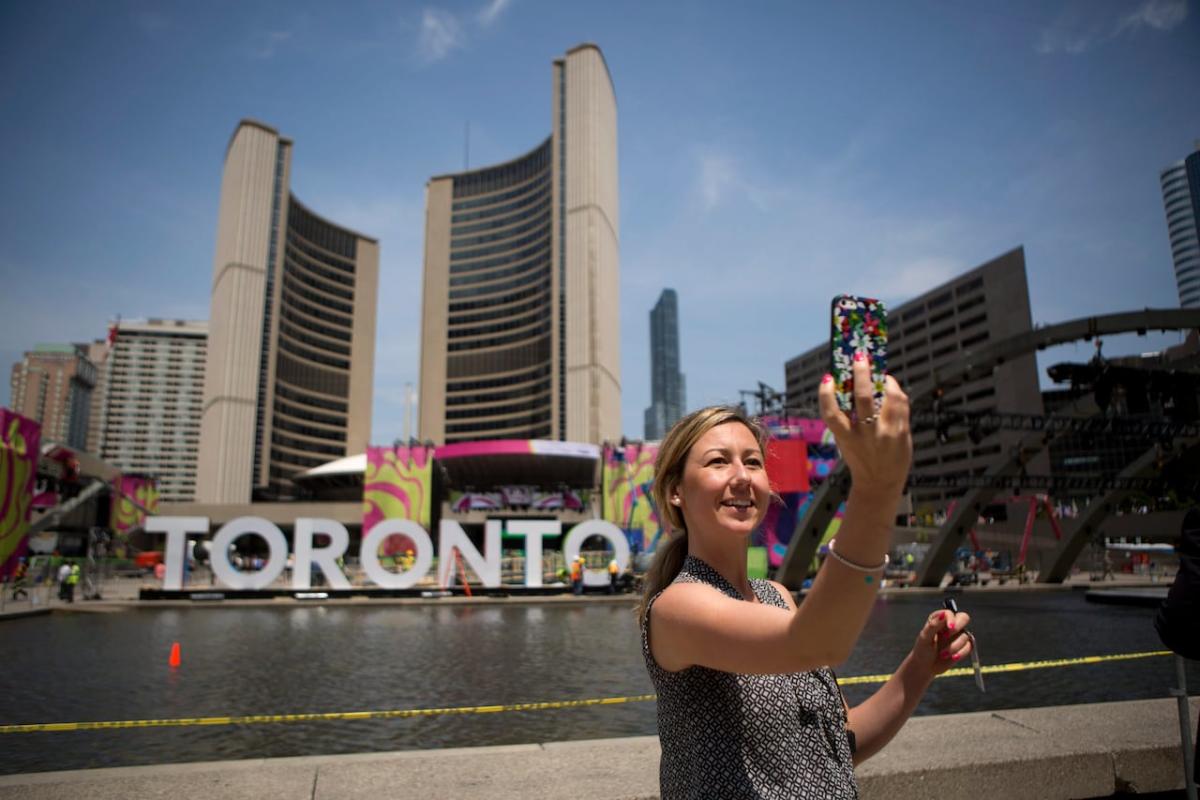Toronto’s tourism industry is still in post-pandemic recovery and projecting how the season will look is difficult even as summer officially kicks off, a leading tourism association says.
Factors like an affordability crisis are causing travellers to book trips with less notice than they used to, making predictions difficult, according to Destination Toronto, an industry association funded in part by the city.
While people used to book trips months in advance, Destination Toronto’s CEO Andrew Weir says they’re now waiting until they have greater certainty of their financial situation.
One positive is the city is seeing lots of travel from within the country, but after the pandemic decimated tourism, international travel still isn’t where it was, says Weir.
“A lot of our major overseas international markets are still not all the way back,” he said, adding travel from the United States is also at about three quarters of what it was.
“Toronto really is dependent on all of those engines firing at full strength and when only some of them are, then it leaves some gaps.”
But things have been trending in the right direction. A report released by the Destination Toronto earlier this month said visitor volume in the city in 2023 reached within five per cent of pre-pandemic 2019 levels, while visitor spending was slightly higher than 2019. The higher dollar amount in 2023 was driven up by inflation, the report notes.
Year-over-year visitor growth was about five per cent through the first fourth months of 2024, but Weir says it’s been flat through May and June so far.

Factors like an affordability crisis are causing travellers to book trips with less notice than they used to, according to Destination Toronto’s CEO Andrew Weir, making predictions difficult. (Submitted by Kathy Motton)
“Flat is not good right now because we’re still in recovery mode. We need to be in growth mode,” Weir said.
In particular, Toronto isn’t seeing as many travellers from China as it used to, he says. In 2019, Toronto saw more than 300,000 Chinese visitors, but is now seeing only a quarter of that.
Weir believes the dip in Chinese travellers can partially be blamed on diplomatic tensions between Canada and the country.
Hotels say business is good, tour guides see slump
On top of that, fewer people are booking walking and cycling tours than last year, says Jason Kucherawy, president of the Tourist Guide Association of Toronto.
“Trends in travel change. I think people are looking for more personalized experiences. They’re looking for ways to not feel so much like a tourist,” he said.
“A lot more people are just going to cities and relying on Google to get them around and online apps to give them information. But what they’re missing out on is that actual connection, the person-to-person connection.”


The hotel industry expects to see growth with Canada Day coming up, the Canadian National Exhibition in August and the Toronto International Film Festival as the season winds down in September. (Joel C Ryan/Invision/The Associated Press)
On the hospitality side, things are looking better, according to the Greater Toronto Hotel Association.
Sara Anghel, the association’s CEO, said business travel has been lagging a bit but she’s confident her industry will see growth this summer with Canada Day coming up, the Canadian National Exhibition in August and the Toronto International Film Festival in September.
Looking further ahead, there’s also something happening in November that should bring lots of business for hotels: Taylor Swift’s the Eras tour.
She said rooms may be hard to find downtown for that event, but people should take advantage of all the hotels in surrounding areas like Markham or Mississauga.
“We have many, many hotels connected to our public transit,” she said.
Operators outside Toronto struggling
In other parts of the province, tourism operators are still struggling, according to the Ontario Chamber of Commerce.
Claudia Dessanti, the chamber’s director of policy, says coming out of the pandemic, the expectation was the industry province-wide wouldn’t recover until 2025 and that still looks to be the case.
“Inflation is a serious concern because the costs for [tourism] operators are going up, but the spending capacity of visitors and the economy is not keeping up,” she said. “Last year we did see an uptick in spending, but still the costs are outpacing that.
Another challenge is that the rebound of economic activity has mostly been concentrated to the larger cities, leaving smaller places struggling, she says.
“Ontario is such a diverse province, one thing that we want to always keep front of mind is that the vibrancy of the smaller and rural communities in the province sometimes gets lost in the conversation.”

